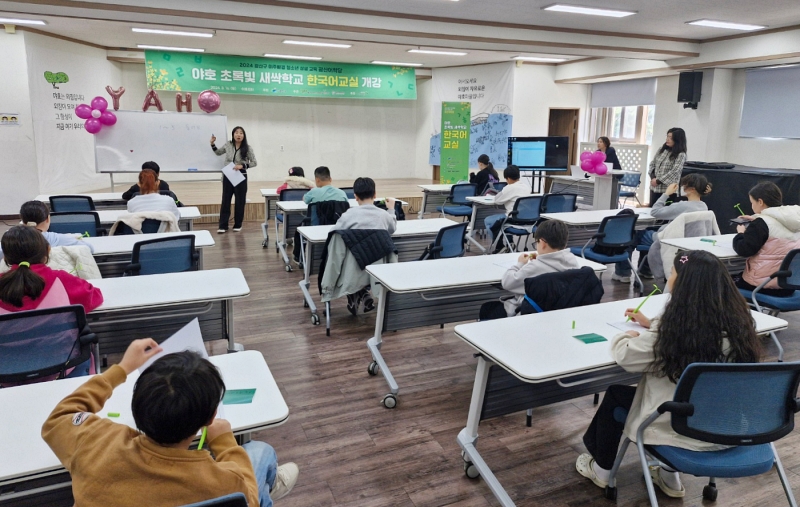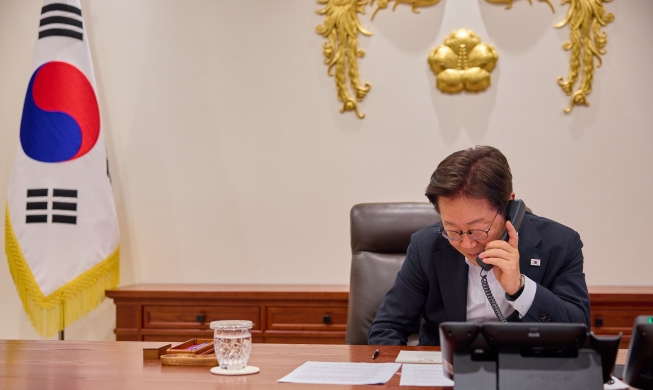
The Ministry of Education has pledged more support for customized education for students with immigrant backgrounds. Shown are such students in a Korean-language class in March last year at Yaho Center of Youth Culture Center in Gwangju's Gwangsan-gu District. (Gwangsan-gu Office)
By Park Hye Ri
The surge in the number of students with immigrant backgrounds has prompted more government support for their customized education.
At the first ministerial meeting on social relations at Government Complex-Seoul in the capital's Jongno-gu District, the Ministry of Education on Feb. 11 said this after reviewing and announcing a plan to support such education for the students.
Students with immigrant backgrounds refer to those with or who used to have foreign nationality, or whose parents or guardians are or were foreign nationals. Such students accounted for just 1.07% (67,806) of the country's students in 2014 but the figure jumped to 3.72% (193,814) last year.
Thus the ministry will send more teachers to 100 schools with a high percentage of such students (30% or more among at least 100 students) and raise the number of personnel like teachers of Korean and bilingual instructors.
Translation of digital textbooks based on artificial intelligence (AI) into multiple languages and AI-based programs for Korean-language instruction will also seek to customize education for each student.
Children of international couples born in Korea will get customized and integrated support. Students who spent most of their lives abroad or those from foreign families will receive early education in Korean and counseling according to nationality, fluency in Korean and residential status.
Breaking from a previous focus on elementary school students, educational support and Korean-language classes will be expanded for those in middle and high school. New guidance resources will also be developed related to residential qualifications, careers and admission to higher education.
In cooperation with the Ministry of Justice, the Ministry of Education will streamline the visa system so that students can live and work in Korea after graduating from high school.
To form such a system sustainable for students from immigrant backgrounds, another plan is to push for the enactment of a law for teachers who can support such students. A survey to devise proper education policy will also be conducted for the first time in the second half of the year.
In addition, the Ministry of Unification pledged to amend and implement the Enforcement Degree of the North Korean Defectors Protection and Settlement Support Act to expand opportunities for defectors to build assets. It will also scrap age limits on educational support.
hrhr@korea.kr
Most popular
- Songs from 'KPop Demon Hunters' dominate global Billboard charts
- Council sets minimum hourly wage in 2026 at KRW 10,320
- 28th annual Boryeong Mud Festival to offer more night events
- Songs from animated K-pop film rule Spotify daily chart in US
- Exhibition 'K-Comics World' hawks webtoons in 5 countries
